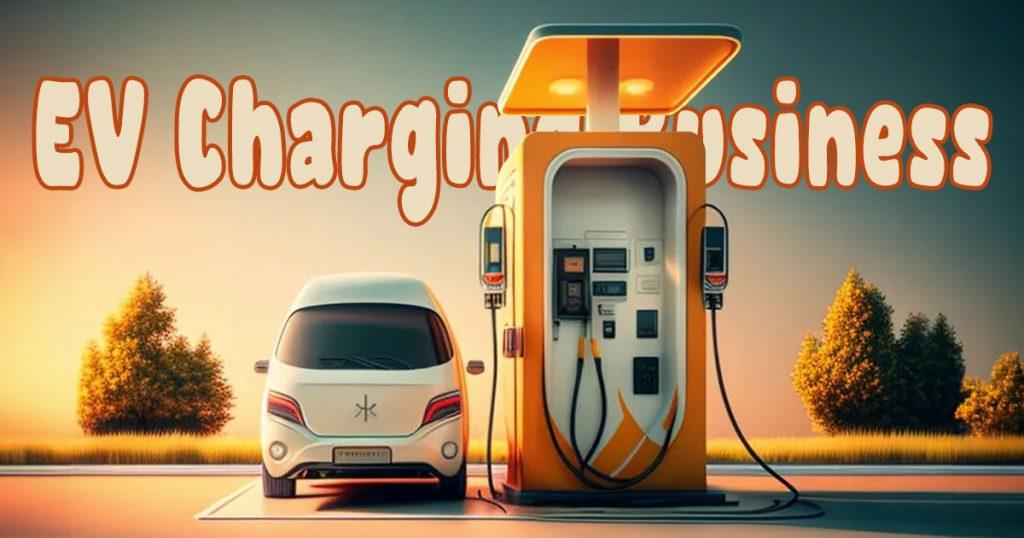With the rise of eco-friendly transportation, more people are turning to electric vehicles (EVs). This indicates that the demand for dependable and practical EV charging stations is rising. Starting your own EV charging station business can be a great opportunity, but it takes careful planning.
Understanding the EV Charging Station Business
Before we get into the details, it’s important to grasp the fundamentals of the EV charging station industry. EV charging stations are infrastructural installations that provide electric power to electric cars. These stations come in various forms, including public EV charging stations, private charging stations for businesses or residential use, and mobile charging stations.
Market Research and Planning
Market research and planning are crucial steps when you start an EV charging business. Here’s a simplified guide to help you:
Identify Your Target Market
Determine the demographic and geographic characteristics of your target market. Consider factors such as population density, EV ownership trends, and existing charging infrastructure.
Analyze the Competition
Examine the existing EV charging stations in your region. Determine their pricing tactics, as well as their strengths and limitations. Use this information to set your company apart from the competition.
Choose a Business Model
Choose the type of EV charging station business you want to launch. Options include public charging stations, private charging stations for businesses, and mobile EV charging businesses. Each model presents a unique combination of challenges and opportunities.
Location Selection
Choose strategic locations for your charging stations. Consider elements including visibility, accessibility, and closeness to highways, commercial centers, and residential neighborhoods.
Regulatory Requirements
Research and comply with local, state, and federal regulations governing EV charging stations. Permits, licenses, and construction code compliance may all fall under this category.
Setting Up Your EV Charging Station
Setting up EV charging stations involves several key steps. Here’s a simple guide:
Selecting Charging Equipment
Based on your business model and target market, choose the right charging equipment. EV chargers come in different types or levels, depending on how fast they charge:
Level 1
- Connection: Uses a standard 120V outlet
- Speed: Charges about 5 km or 3 mi per hour
- Time to full charge: Typically 20+ hours
Level 1 chargers are easy to manage as they use existing electrical systems. They are suitable for homes or emergencies but are too slow for commercial use.
Level 2
- Connection: Requires a 240V outlet
- Speed: Charges about 30–50 km or 20–30 mi per hour
- Time to full charge: Usually 6 to 14 hours
Level 2 chargers need special installation with higher-voltage outlets and software for faster charging and automatic billing. They are good for retail settings.
Level 3
- Connection: Uses direct current (DC)
- Speed: Charges about 200 km or 124 mi per hour
- Time to full charge: Typically 20 minutes to an hour
Level 3 chargers require special hardware and electrical systems for the fastest charging. They are best suited for highways and busy routes, serving as alternatives to gas stations.
Installation and Maintenance
Install your charging equipment according to the manufacturer’s instructions and local legislation. Regular maintenance is essential for ensuring the reliability and safety of your charging stations.
Payment Systems
Set up payment systems for your charging stations. Options include pay-per-use, subscription-based models, and membership programs. Consider providing several payment choices to satisfy diverse client preferences.
Marketing and Promotion
Create a marketing strategy to promote your EV charging station. Reach your target audience through social media, internet advertising, and partnerships with EV manufacturers.
Managing Your EV Charging Station Business
Managing an EV charging station business involves several key aspects to ensure its success. Here’s your guide:
Customer Service
Provide outstanding customer service to attract and keep consumers. Respond quickly to requests and issues, and keep your charging stations in good working order.
Monitoring and Analytics
Monitor and analyze the operation of your charging stations. This data can help you optimize your operations and improve customer satisfaction.
Expansion and Diversification
Consider expanding your EV charging station business by adding more stations or offering additional services, such as solar-powered charging or battery swapping.
Stay Updated
Stay updated on the newest EV trends and innovations. This will allow you to adjust to changing market conditions and stay ahead of the competition.
Start Your EV Charging Stations Business Now!
Starting an EV charging station business needs careful planning, market research, and regulatory compliance. By following the steps outlined in this guide, you can start and grow a successful business that meets the growing demand for electric vehicle infrastructure.
